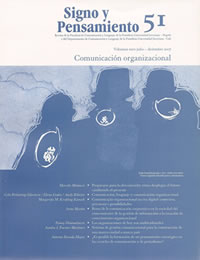Abstract
Organizations play an increasingly strategic role in the search for sustainable development in today’s world. In this process, organizational culture is undergoing significant transformations that reveal the need for a balance between ecological and human issues; this implies a constant awareness that goes far beyond consumption or richness indicators, and that fosters the development and strengthening of the common good. This means that the concept of corporate citizenship is clearly understood, and that organizations are considered as human systems and not as moneymaking machines. In this context, the search for new paradigms of corporate management that reach a balance between science and social awareness becomes strategic.This journal is registered under a Creative Commons Attribution 4.0 International Public License. Thus, this work may be reproduced, distributed, and publicly shared in digital format, as long as the names of the authors and Pontificia Universidad Javeriana are acknowledged. Others are allowed to quote, adapt, transform, auto-archive, republish, and create based on this material, for any purpose (even commercial ones), provided the authorship is duly acknowledged, a link to the original work is provided, and it is specified if changes have been made. Pontificia Universidad Javeriana does not hold the rights of published works and the authors are solely responsible for the contents of their works; they keep the moral, intellectual, privacy, and publicity rights.
Approving the intervention of the work (review, copy-editing, translation, layout) and the following outreach, are granted through an use license and not through an assignment of rights. This means the journal and Pontificia Universidad Javeriana cannot be held responsible for any ethical malpractice by the authors. As a consequence of the protection granted by the use license, the journal is not required to publish recantations or modify information already published, unless the errata stems from the editorial management process. Publishing contents in this journal does not generate royalties for contributors.


